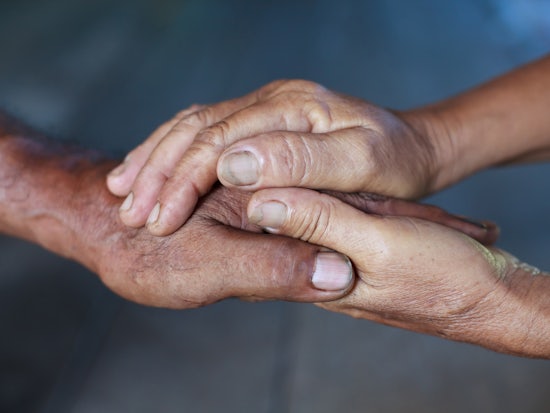Our Languages Matter – Communication key to reducing Indigenous health risk
A gap in communications between health care professionals and Indigenous people has been highlighted in a paper published by the University of Adelaide’s Head of Linguistics, who says some lives are being put at risk because of a lack of patient-doctor understanding.

Poor communication can lead to “mistrust and disengagement in the health sector” (Source: Shutterstock)
Coinciding with NAIDOC Week and the theme of Our Languages Matter, the paper that was published in the Medical Journal of Australia, has raised concerns not just about language but also a lack of cultural awareness that also impacts on good communication with Indigenous patients.
Dr Robert Amery, author of the paper and head of Linguistics within the University of Adelaide’s School of Humanities is a Kaurna language expert and says poor communications can lead to “mistrust and disengagement with the health sector” among Indigenous patients, leading to a lack of compliance with treatment, and ultimately poor health outcomes.
He says that miscommunication can be subtle, and previous studies have shown that while both parties think they have understood each other, they can in fact come away with very different understandings.
“While many speakers of Indigenous languages living in remote areas can engage with outsiders and converse in English about everyday matters, they often have a poor grasp of English when it comes to health communications and other specialised areas,” Dr Amery says.
“Miscommunication isn’t just about language. Some of these difficulties also arise from the interface of communication and culture, which are often derived from differences in worldview.”
Some of the recommendations made by Dr Amery in the paper include understanding that germ theory and immune system are foreign concepts, that silence plays an important role in indigenous cultures.
“Indigenous people often respond to questions after a prolonged pause, a concept foreign to those doctors who see silence as impolite in their own cultures,” Dr Amery says.
“They compensate by filling the silence and disrupting Indigenous patients’ thoughts.
“There is a simple solution: pause and allow the patient to think.”
It is also suggested by Dr Amery that healthcare professionals avoid using ‘intangible’ conceptual English words and vague sentences, instead focusing on factual communication – even demonstrating how medical procedures work and use simple diagrams to explain medical issues.
“These examples may seem plain and obvious, but astoundingly, despite the many hours dedicated to communication in medical education, such concepts are not taught,” Dr Amery says.
“An investment of time in the consult will have immense payoffs over the long term.”











![The new Aged Care Act exposure draft is slated for release in December of 2023, but advocates hope to see it rolled out on January 1, 2024. [Source: Shutterstock]](https://agedcareguide-assets.imgix.net/news/articles/wp/agedcareact__0811.jpg?fm=pjpg&w=520&format=auto&q=65)












Comments